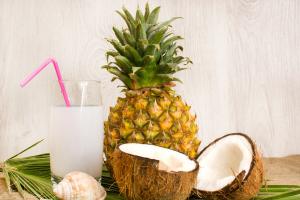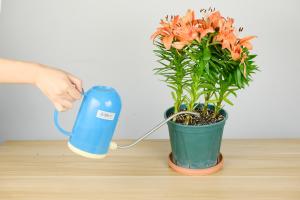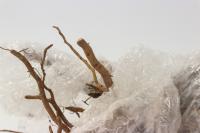Shape features
The shape of colored leaf grass
Color leaf grass is a perennial herb. The shape of the plant is ugly and has little ornamental value.
The branches and stems of color leafy grass are covered with hair, the stems and stems are quadrangular, and the bottom of the plant is lignified;
Leaves: single leaves grow in opposite shape, oval shape, long apex, gradually becoming sharp, with blunt teeth on the edge. The surface of the leaves is green, yellow, peach red, vermilion and other colors mixed into a color style.
Flowers of color leaf grass: terminal racemes, small flowers, light blue or light purple.
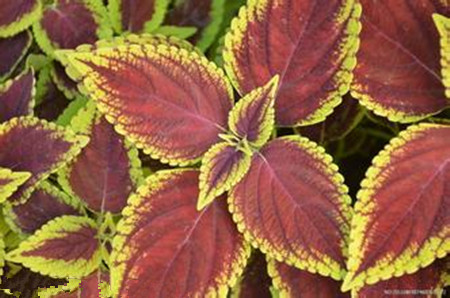
The shape of Perilla
Perilla is an annual erect herb.
Stem of Perilla: the stem is green or purple, the shape is blunt quadrangular, with four grooves on it and covered with pilose hair;
Leaves of Perilla: the leaves grow in a broad oval or circular shape, the shape of the top is short tip or protruding tip, the base is round or wide wedge, and there are coarse serrations on the edge of the leaves. The leaf surface is green or purple, and the leaves are also covered with pubescence above and pubescence below;
Flower of Perilla: its flower is a cymose with 2 flowers. The flowers are covered with fluff. The flowers are relatively large and mostly pink white.
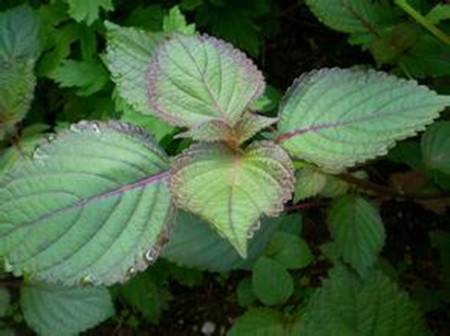
Growth habit
Growth habit of colored leaf grass
Colored leaf grass is a kind of plant that likes temperature. It has strong environmental adaptability. The temperature should be maintained at no less than 10 ℃ in winter and a little shade should be paid attention to in summer when it is high temperature, but sufficient sunlight should be guaranteed, so as to make the leaf color bright.
So this kind of plant is common in the south of China.
Growth habit of Perilla
Perilla is a plant with strong growth adaptability. It does not have strict requirements for the growing soil. It can be grown on sandy soil with good drainage. It can be seen that it grows in front of and behind houses, beside ditches and fields. In addition, it can also be planted and cultivated under young fruit trees.

 jackfruit
jackfruit snake plant
snake plant hibiscus
hibiscus hydrangea
hydrangea lavender
lavender Green roses climb al...
Green roses climb al... If you don't pay att...
If you don't pay att... Management of four g...
Management of four g...
